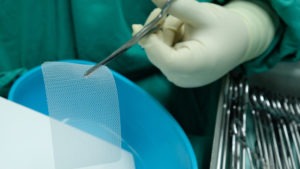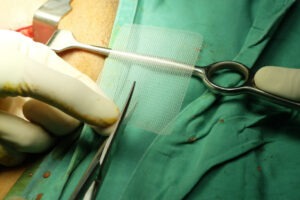
Prior to filing a hernia mesh case, the plaintiff must first know the brand and model of their mesh. Plaintiffs can get the product ID by calling the hospital’s medical records department or by having their personal injury attorney gather the documentation. We have gathered a list of hernia mesh products that are now the focus of significant legal disputes, listed by name and product number.
Hernia mesh injury claimants may go after the medical manufacturer for negligence and product responsibility, depending on the circumstances of their case. If the plaintiffs are successful, they may be awarded significant compensatory damages to cover their medical costs, lost wages, and pain and suffering.
How Can I Determine the Type of Mesh I Have?
The hospital where the procedure was performed can always be contacted by those unsure of the type of hernia mesh they have. Then, their operation and discharge data can be sent to them by its medical records division. These records have to include the mesh model and manufacturer information. As an alternative, customers can pay a personal injury lawyer to get the records on their behalf. Medical records departments may be challenging to work with, and occasionally they can claim that documents are missing when they have only been kept somewhere.
To apply for free, call (877) 735-0016
Several Defective Meshes Have Been Recalled
In reality, compared to requests from individual patients, medical records departments are more likely to consent to demands from legal firms. Legal teams are always equipped to pursue the record department’s case and even sue them if they refuse to comply with the request.
Types of Hernia Mesh Products
Several manufacturers produce various distinct hernia mesh products. The three different kinds of mesh implants are generally:
- Patches that are applied above or below the tissue that has been harmed or compromised;
- Plugs, which close the hernia-related hole; and
- Sheets, which the surgeon can cut any way they see fit to accommodate the patient’s medical requirements.
- Mesh is made of a variety of materials, including:
- Animal-derived materials usually from a pig, cow, or human.
- Synthetic materials, such as polypropylene and polyethylene terephthalate.
- Coated materials that are typically covered with cellulose, collagen, or absorbable fatty acids.
Mesh can also be absorbable or non-absorbable: Permanent mesh, sometimes known as “non-absorbable mesh,” is intended to remain in place until it is removed by a surgeon (if ever). Alternatively, mesh may be transient (“absorbable”), which means it is intended to degrade and be absorbed by the body.
Mesh Manufacturers
The following are some top mesh manufacturers:
- Atrium
- Ethicon
- Bard
- Gore Medical
- Covidien/ Medtronic
- Genzyme
Complete a Free Application form now
Suing After a Hernia Mesh Complication
You may be able to sue the manufacturer of the medical equipment if you have a faulty mesh implant. Depending on your unique situation, you may file a lawsuit for defective product, negligence, or inadequate product usage warning. Your lawyer can help you decide whether to file a hernia mesh MDL or file a solo action. While you wait for your case to settle, you should consider applying for a lawsuit funding.
Need Hernia Mesh Legal Funding? Call High Rise Financial Today!
Contact us today at High Rise Financial to get affordable, risk-free settlement funding. You can also call us on (866)-407-6404 to schedule a simple consultation. Our trusted experts will be happy to speak with you and discuss your available lawsuit funding options.
Call or text (877) 735-0016 or fill out our form to apply today for free.



